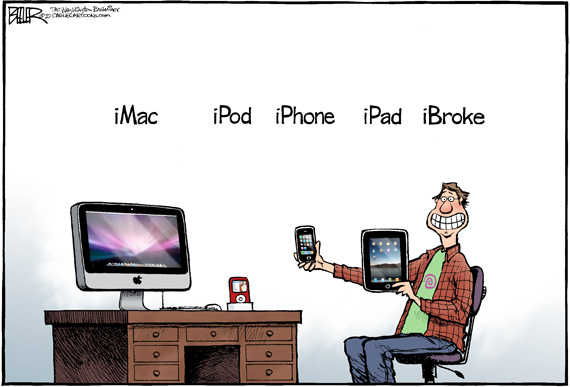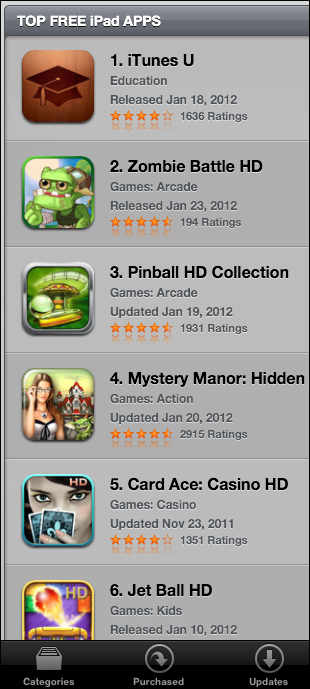I love this news story, an exposition of the Supreme Court exposing its irrelevance:
In an entertaining hour-long episode, Supreme Court justices on Tuesday considered the government’s power to regulate expletives and nudity on the airwaves.
Why is this amusing to me? Because along with many other twentieth-century electromagnetic phenomena, broadcast television is dead.
Every word in that claim is important. “Television” — meaning audio/visual content primarily intended to entertain — is still with us, although it is likely to merge with other forms of on-line content.
But “broadcast television” — TV transmitted over the airwaves, one sender, many recipients — is a dead-letter today, and it will be progressively less important — and progressively less profitable — with every passing year.
The reason is simple: The future of entertainment is iPad-style video:
The iPad is the ultimate perfect television. On-demand. Stop and start at will. Goes with you when mom says you have to go to soccer practice. The iPad is the perfect entertainment-consumption device: Personal, portable, programmable — and infinitely extensible.
You may watch this video content on a device as small as your phone or your wrist-watch or on one as big as your living room wall, but this is the future of video in your life.
Broadcast — one-size-fits-all, limited-choices, isolated in a frozen time-schedule, can’t stop it, can’t rewind it, no easy way to research or cross-reference it, stuck on one very stupid device, hag-ridden with commercials — all of that is dead. It was a kludgey business model when it was the best we could do. By now, it’s a dinosaur — so we should expect it to endure a loud but inescapable death.
Note, too, that your cable company’s very-stupid on-demand service is also headed for the morgue, as are slightly better on-demand services like Netflix. The future of entertainment video is your friendly neighborhood search engine — augmented by the kinds of software services I have been describing lately.
The reality of your life is that you are going to watch what you want, when you want, on whatever device you choose — and you are going to have many more devices to Read more

